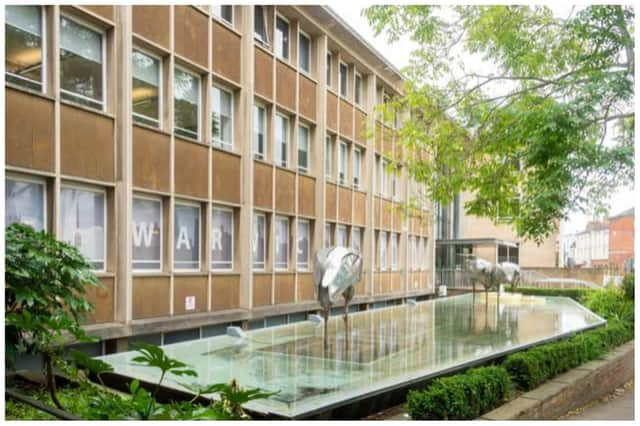Warwick District Council: Greens go for joint economic plan despite trepidation


The partnership between Warwick and Stratford-on-Avon district councils provides a five-year strategy covering “common ground opportunities and challenges” in relation to the economy.
It focuses on three broad themes – people, productivity and place – to set the framework for regeneration, economic development and the infrastructure needed to support growth in the economy.
Advertisement
Hide AdAdvertisement
Hide AdWarwick District Council’s report referred to it as “a key document in attracting investment into the area, particularly at a time when investment will be actively sought” for initiatives such as the West Midlands Investment Zone (WMIZ), including the Giga Park and the Giga Factory.
The matter was voted through by the Liberal Democrat cabinet – panel of councillors in charge of major service areas – at Stratford this week, which was followed by unanimous support from their counterparts covering the district of Warwick, which is run by a coalition of Green Party and Labour councillors.
During the discussion of this at Stratford’s cabinet meeting, the Greens welcomed the plans but argued for greater emphasis on environmental matters, particularly in relation to transport and the potential widening of the A46.
At Warwick, the Liberal Democrats and Conservatives heralded the plans but while the Greens agreed to push forward, they acknowledged the decision had not been straightforward.
Advertisement
Hide AdAdvertisement
Hide AdLeader Councillor Ian Davison (Green, Leamington Brunswick) said: “This is perhaps a more interesting discussion in our group.
“There is not an ‘economic growth at all costs’ view from our party so there is a bit of a challenge here.
“If you look at the vision within the strategy, it says a larger, stronger, greener and more inclusive economy. In many ways we agree with all of those but there is a tension on our part between two of those.”
Councillor Ella Billiald (Green, Leamington Willes), Warwick district’s portfolio holder for arts and economy, added that she had found it “quite a challenge”.
Advertisement
Hide AdAdvertisement
Hide Ad“Balancing the promotion of economic developments and growth with the Green Party’s strong emphasis on environmental sustainability and social justice requires a nuanced and pragmatic approach,” she said.
“Our commitment to a sustainable future does not necessitate outright opposition to economic development, instead we advocate for a green and inclusive economy that considers environmental impacts, social equity and long-term sustainability.”
She said that green technologies and renewable energy sources should be able to boost economic growth “without compromising the wellbeing of our community and the environment” and that the aim was to “reshape the local economy to be more resilient, economically friendly and socially responsible”.
Despite expressing her wish to alter a “rather dramatic” reference to scaling up the economy on the front of the document, she insisted there was “a definite green vein running throughout”.
“We need to be green but relevant,” she admitted.
Advertisement
Hide AdAdvertisement
Hide Ad“What I mean by that is we must meet the needs of our communities, the basic needs of food, shelter, warmth and employment, and these are only met through the growth of our economy.
“As the strategy states, South Warwickshire is home to 16,000 businesses and 282,177 people. The population is also growing, we need affordable homes that are low carbon and retrofitted.”